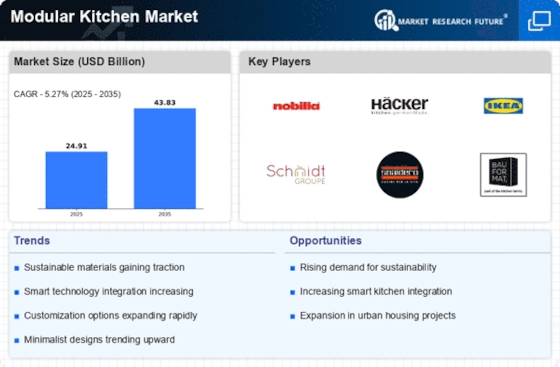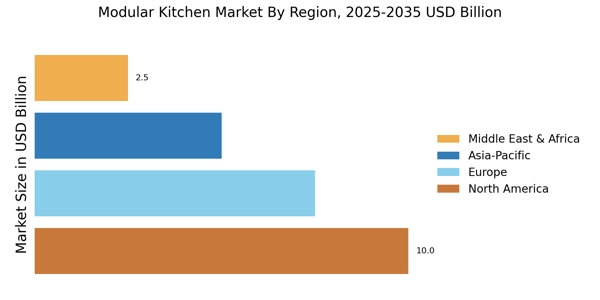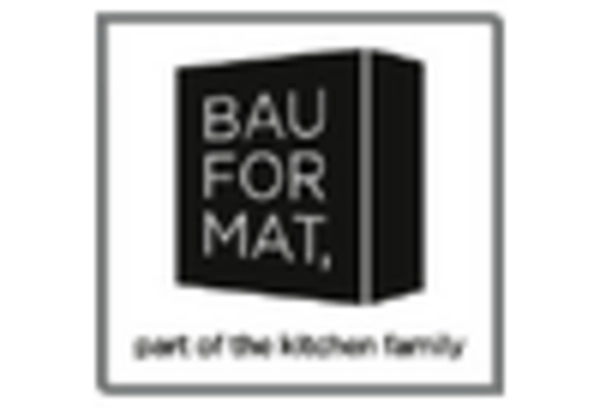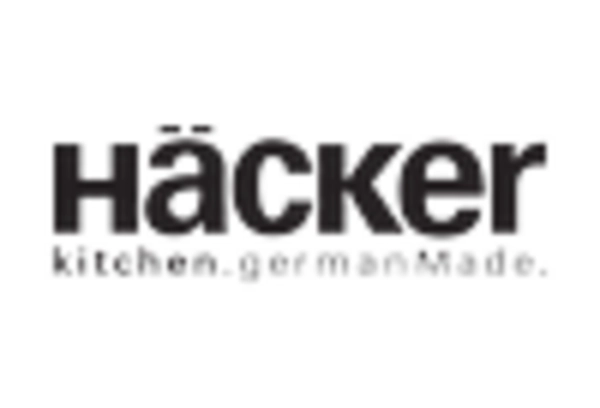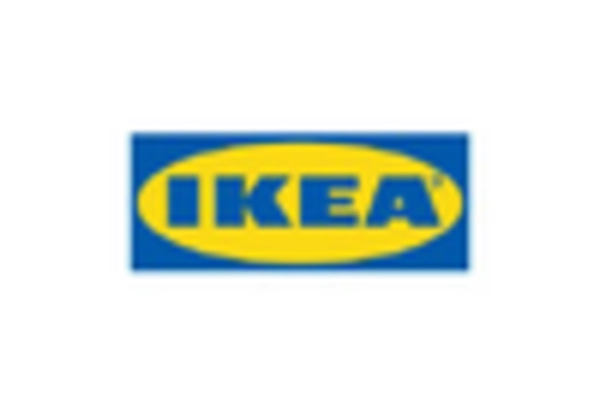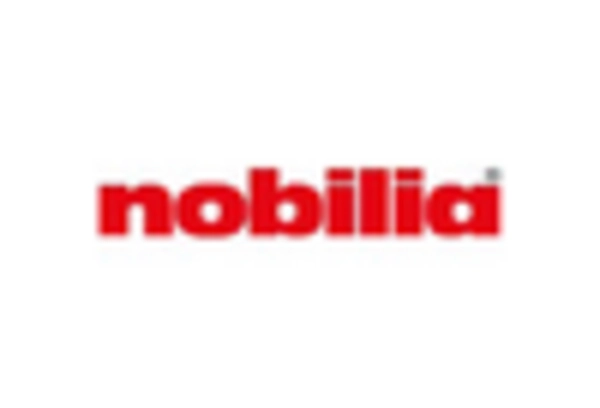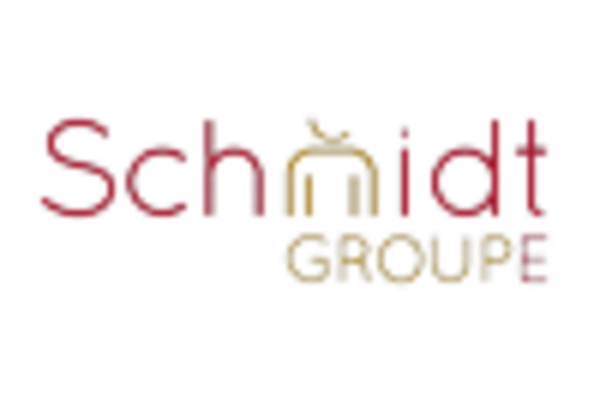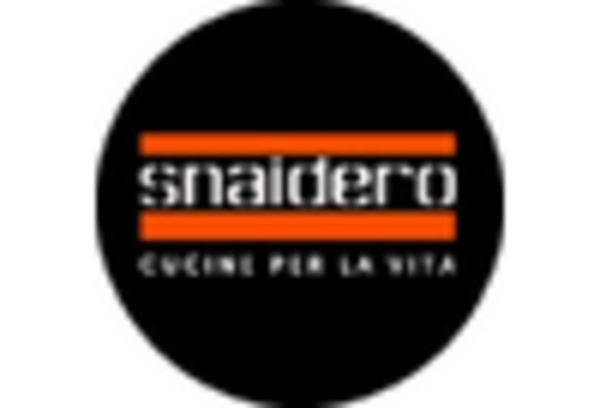North America : Market Leader in Innovation
North America is the largest market for modular kitchens, holding approximately 40% of the global market share. The region's growth is driven by rising disposable incomes, urbanization, and a growing preference for customized kitchen solutions. Regulatory support for sustainable building practices further catalyzes market expansion, encouraging manufacturers to innovate and adopt eco-friendly materials.
The United States and Canada are the leading countries in this market, with major players like KraftMaid and MasterBrand dominating the landscape. Within North America, the United States modular kitchen market accounts for a substantial share, supported by widespread adoption of ready-to-assemble and custom-built kitchen solutions. The competitive environment is characterized by a mix of established brands and emerging companies, all vying for market share through innovative designs and customer-centric solutions. The presence of key players ensures a diverse range of offerings, catering to various consumer preferences.
Europe : Cultural Hub of Design
Europe is the second-largest market for modular kitchens, accounting for around 30% of the global share. The region's growth is fueled by a strong emphasis on design, sustainability, and technological integration in kitchen solutions. Regulatory frameworks promoting energy efficiency and eco-friendly materials are significant catalysts for market growth, encouraging manufacturers to innovate and meet consumer demands for sustainable living. Germany, Italy, and France are the leading countries in this market, with key players like Nobilia, Häcker Küchen, and Snaidero setting trends in design and functionality. The competitive landscape is vibrant, with a mix of traditional craftsmanship and modern technology. European manufacturers are known for their high-quality products, which appeal to a discerning consumer base that values aesthetics and functionality.
Asia-Pacific : Emerging Market Potential
Asia-Pacific is witnessing rapid growth in the modular kitchen market, holding approximately 20% of the global share. The region's expansion is driven by increasing urbanization, rising disposable incomes, and a growing middle class that seeks modern kitchen solutions. Government initiatives promoting home ownership and renovation projects are also significant growth drivers, creating a favorable environment for market players.
China and India are the leading countries in this region, with a burgeoning demand for modular kitchens. The modular kitchen market size in India is expanding steadily, supported by rising urbanization, increasing disposable incomes, and a growing preference for modern home interiors. The India modular kitchen market witnessing strong growth due to rising urbanization, increasing disposable incomes, and a growing preference for modern kitchen solutions. Expanding residential real estate and home renovation activities are supporting growth in the modular kitchen market in India, particularly in metropolitan and tier-I cities. Likewise, the modular kitchen market size India expected to expand significantly during the forecast period due to rising urban housing demand and increasing adoption of modular interiors. The competitive landscape is evolving, with both local and international brands vying for market presence. Key players like IKEA and local manufacturers are innovating to cater to diverse consumer preferences, focusing on affordability and functionality to capture market share.
Middle East and Africa : Untapped Market Opportunities
The Middle East and Africa region is emerging as a potential growth market for modular kitchens, currently holding about 10% of the global share. The growth is driven by increasing urbanization, a rise in disposable incomes, and a growing interest in modern home designs. Government initiatives aimed at improving housing infrastructure are also contributing to market expansion, creating opportunities for modular kitchen solutions.
Countries like the UAE and South Africa are leading the market, with the GCC modular kitchen market witnessing growing demand due to rising urbanization, premium housing projects, and increasing adoption of modern kitchen designs across the region. Adoption of smart appliances and sustainable materials is gaining traction in the UAE modular kitchen market, reflecting the region’s focus on innovation and energy efficiency. . The competitive landscape is characterized by a growing number of entrants, including established brands and new startups. Key players are focusing on innovative designs and customization options to meet the diverse needs of consumers in this region.


